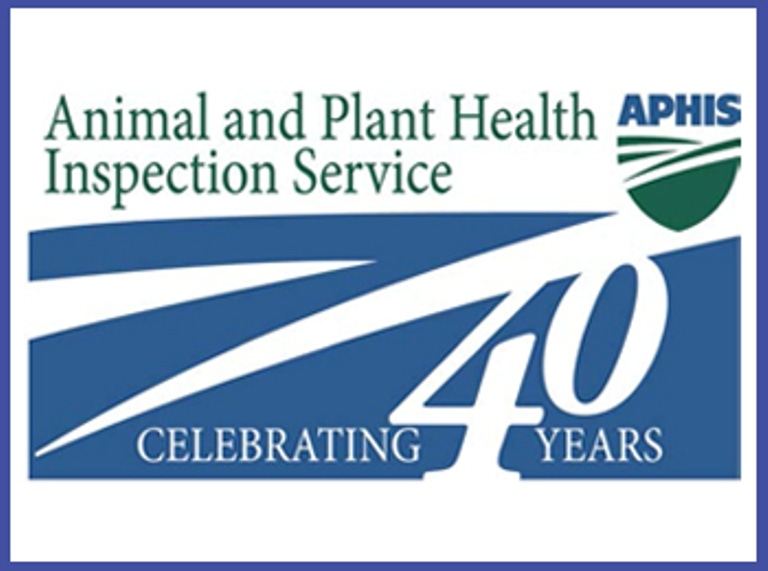APHIS releases five-year strategic plan
Strategic plan will guide APHIS programs as agency adapts to global changes and continue efforts to safeguard U.S. agriculture.

The U.S. Department of Agriculture’s Animal & Plant Health Inspection Service (APHIS) released a new version of its strategic plan that includes tangible and specific goals to guide the agency through 2023.
“Agriculture and the global marketplace continue to evolve, and APHIS must progress and change to keep pace,” the strategic plan stated.
The driving forces identified require that APHIS take a critical look at how it strategically conducts its activities to best meet its mission.
The driving forces include: delivering services with a customer focus, global demand for U.S. agricultural products, ensuring that protection is at a reasonable cost, rapid advances in science and technology and a changing pest disease landscape.
“While some of these driving forces are predictable and have become established over time, other forces, such as the changing pest and disease landscape, are less predictable and present more uncertainties,” the plan noted.
APHIS said it is dedicated to protecting the health, welfare and value of American agriculture and natural resources. At the same time, APHIS said it understands that this protection should be at a reasonable cost.
“With this understanding, APHIS is committed to easing regulatory burdens on the American people. Easing regulatory burdens makes it easier to create jobs and promote economic growth. Agriculture and commerce operations have changed over the years, and the regulatory tools that worked in the past may not be the best tools to use today. We need to go beyond regulations and seek out other means for safeguarding animal and plant health and animal welfare. We will continue to work closely with our partners, stakeholders and customers to explore alternatives to regulations. This may include employing outreach initiatives or leveraging industry standards.
“We will look at flexible approaches to apply to existing regulations and identify older regulations that are outdated, unnecessary, ineffective and no longer supported by science or sound policy,” the plan stated.
It is essential that APHIS adapts to this changing landscape by preventing the entry and spread of these pests and diseases in the U.S. and by strengthening its early-detection, preparedness and response capabilities, the plan stated, adding, “APHIS will employ an integrated, systems-based One Health approach, which focus on the interconnection between people, animals, plants and the environment, to minimize the risk of pest and disease events, to protect the national food supply.”
APHIS administrator Kevin Shea said its three strategic goals are to:
Deliver efficient, effective and responsive programs.
Safeguard American agriculture.
Facilitate safe U.S. agricultural exports.
In a statement, Shea said, “When I became APHIS administrator in 2013, I told you my core beliefs, which remain the same today. I still believe that healthy and profitable agriculture is good for America; it provides food and clothing for countless people worldwide and is a key pillar to a thriving economy. I also believe that government’s role is to do collectively what no one of us can do for ourselves. Finally, I believe that our special responsibilities to care for vulnerable animals are noble and worthy of the attention we give them.”
About the Author(s)
You May Also Like





